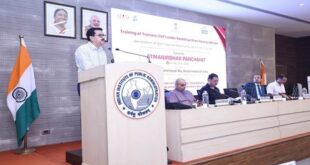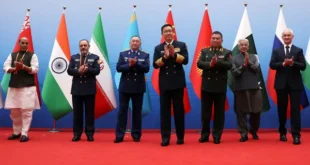- A majority of survivors interviewed from Tamil Nadu as a part of the research project Surviving Violence: Everyday resilience and gender justice in rural-urban India shared their domestic violence experience for the first time after the incident took place in six to twelve months.
- The research project carried out in Tamil Nadu, West Bengal and Maharashtra, aims to understand violence as well as access to law and justice by examining the experiences of women across rural, urban and semi-urban areas.
- As many as 61 survivors from rural, semi-urban and urban areas in Tamil Nadu, 30 community members and 63 support service providers, which included non-governmental organisations, government service providers, protection officers, medical practitioners, the police and lawyers, were interviewed as part of the survey.
- “This hesitation came from socialisation to adjust and the idea that they had to wait for it to cross a threshold, and the inability to recognise violence as violence. There was also a concern about their families and uncertainty about the support they would receive,” said Swarna Rajagopalan, Founder, Prajnya and Project Lead, Tamil Nadu, for the research project.
Process of sharing
- She spoke about how for many women, the process of sharing has been triggering and emotional, and that the responses to this was also met with persons trying to normalise the violence, taunting and gossip.
- A majority of the respondents also indicated that the informal support system, which included family, neighbours and religious community leaders, were the ones who provided the most beneficial support or advice.
- Beyond families, the most easily accessible were all-women police stations.
- The knowledge of government services, including helplines, was not standard across districts.
- While more people in rural districts knew about Protection Officers, more people in the semi-urban areas had used helplines.
- “Our findings also indicated how support service providers have a more conservative outlook in some instances and a greater ignorance when it comes to understanding the law. For instance, a lower percentage of service providers in comparison to survivors thought that domestic violence isn’t excusable when the perpetrator is drunk,”
- Swarna said. This, the project indicated, would mean that the likelihood is slim that survivors will receive practical help without judgement or advice to adjust to violence.
Stand-out suggestions
- Among the recommendations, gender sensitisation for service providers and a general focussed approach to change values and attitudes that normalised violence and inequality stood out.
- ”As a part of crisis support, all departments and facilities working towards this need has to work in cooperation. Financial empowerment which includes short term allowance for women in distress and making long term skill and entrepreneurship programmes are important. Legal aid too, should be more accessible and affordable,” Ms. Swarna added.
SOURCE: THE HINDU, THE ECONOMIC TIMES, PIB
 Chinmaya IAS Academy – Current Affairs Chinmaya IAS Academy – Current Affairs
Chinmaya IAS Academy – Current Affairs Chinmaya IAS Academy – Current Affairs



